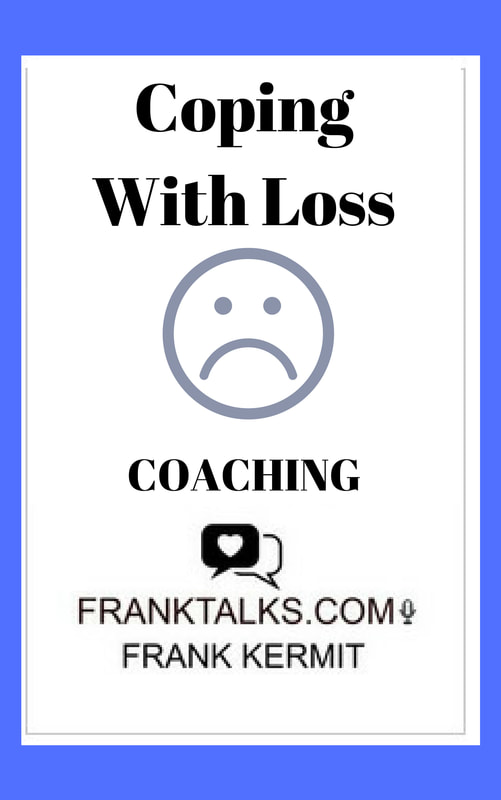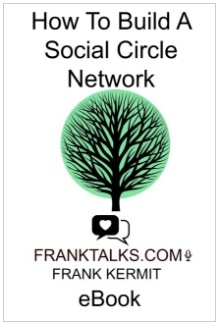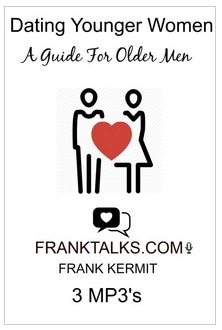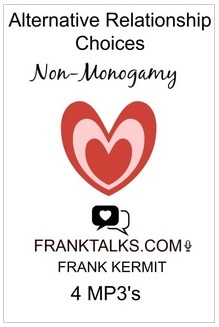|
Towards Polyamory? A Personal And Unfinished Journey By Ken Polyamory is a new term and concept for me. It has arisen in my consciousness as the result of an ongoing search for meaning in my life, and as a term that represents a new way of looking at relationships, commitment, fidelity, sexual freedom and personal values. For me it encompasses feelings of fear and insecurity, but also feelings of belonging, connectedness and liberation from old patterns and stifling conventionalities. I am thinking about polyamory, among a number of relationship options, as a viable and possibly joyful form of intimate engagement with others. First, a bit of background. I am a 64 year old gay man. I came out in my late 40s – a late bloomer by any definition. I had a good (sometimes very good) 27 year marriage with a loving woman, and together we raised two daughters. However (and I suppose this is “a tale as old as time”, as the song goes) there were increasingly protracted periods of depression and frustration as it became clearer to me that this identity was untenable, and I left my marriage. I set out on a new path. In the meantime, I retired and moved from Saskatchewan to my place of birth, Nova Scotia. Of course, leaving my identity in Saskatchewan as a heterosexual family man, as a worker and more recently as a member of a GLBTQ community, had its challenges and adaptations, but today I am in an almost 4 year relationship with a loving man. However, there are still stirrings of discontent and frustration. I am still on a journey of discovery, unpeeling layers of personal history - genetics, upbringing, the aging process - and within that context attempting to carve out a life that represents who I am. Who, in fact, am I, and what do I want? My partner and I introduced the idea of non-monogamy into our conversation about two years ago. In those two years we have experimented, including others in our sexual lives, both separately and as a couple. My partner wanted the experience of variety, and I wanted to find a less rigid and conventional means of expressing my sexuality. We have stopped and started this process a couple of times, due primarily to my discomfort. We have very different views about sex. For my partner, sex is sex, a recreational activity whose goal is mutual pleasure. Nothing more. It does not involve emotion or any level of commitment (other than the potential for FWB: Friends-with-benefits). For me, sex is about connection and belonging, intimacy and meaning. Sex is about love and friendship and commitment. So we come to polyamory, the concept of experiencing more than one intimate partner, of sharing lives in a deep and meaningful way with multiple participants, and of enlarging and engaging with one’s notion of relationship. For me this is a fraught process. The very idea of engaging intimately with someone other than one’s partner, and other than in fantasy, has been utterly foreign to me. The process of expanding my sexual contacts has pushed so many buttons – insecurity, confidence, value judgements, fear, anxiety, aging and sexual performance, abandonment, aloneness, jealousy, social censure. On the other hand, I firmly believe that we should never expect one person to satisfy all our needs – a huge responsibility to place on another’s shoulders, and an abrogation of our own responsibility for our own lives. This part of my personal journey, undertaken at a time when many people are questioning the meaning of their lives as they settle into old age, remains unfinished. In my worst moments, I feel a sense of extreme anxiety, and sadness and loss at the discarding of values and beliefs by which I was raised and to which I subscribed throughout my life. In my best moments I look forward with optimism and excitement to the expansion of possibilities in relationship and connection. Author Bio: Ken was born and raised in Nova Scotia, and after working in Western Canada for almost 30 years, retired and returned home to the Halifax area. He is a painter, gardener, reader and cat herder. Below are two youtube videos of interviews Frank Kermit was involved with regarding Polyamory
P.S. Do you Agree With This Article? Disagree? Have something to Add? Write your thoughts in the comments below and share this article to see how many of your friends think like you.
0 Comments
Open Relationships vs Infidelity By Frank Kermit *This is an excerpt of my Ebook: FRANKTALKS VOLUME 3: MONOGAMY AND NON-MONOGAMY EDITION EBOOK Poly Can't Cure A Cheater Addicted To Cheating Some people believe that one of the surest ways to guarantee fidelity is to only do open relationships. The premise is that people only cheat in monogamous relationships. Some advocates of open relationships may even claim that the monogamous relationship structure forces couples that would otherwise be happier in open relationships to lie and be unfaithful. This is also based on the premise that having sex with someone that is not your primary partner is not considered cheating if your primary partner knows about it, and consents to it. I personally concur that consent of extra-marital sex negates the concept of cheating. However, just being in open relationships does not automatically eliminate the cheating ways of a person that cheats for reasons other than dissatisfaction with monogamy.
Others in that situation may justify their infidelity because in their opinions, it is the only way for them to support the illusion of monogamy that they feel is expected of them to maintain.
Now for the surprise...for people who cheat because of the thrill they get from cheating, not even being in an open relationship will quench this behavior pattern.
People that cheat regardless of already having the opportunity to have sex with others outside their primary pair bonding relationship generally do so as a means of escapism. So whether you practice:
people who cheat because they are addicted to the perceived thrill of cheating do so for their own reasons, and not because of the relationship structure they are in; and changing relationship structures with this kind of addict will not help. P.S. Do you Agree With This Article? Disagree? Have something to Add? Write your thoughts in the comments below and SHARE this article to see how many of your friends think like you. Secret Past! Does He Need To Know About Her Sex Tapes? Q&A: Question and Answers Dear Frank, For almost 4 years I was involved with a man and we participated in BDSM. He was my master, and I his submissive. We had a very documented love life (he loved to record everything) especially when we played with others; more like when he let a number of others play with me. Anyways, that was a long time ago. I now live with my fiancé and he knows nothing about my past. He knows that I had one major relationship but does not know anything about the group sex, the BDSM or the videos. I ended up with most of those videos and photos I think, but not all (my Master still has a few). Also, I was blindfolded most of the time during group play, and although my master assures me that no one was was recording anything, there were times when it happened. I live with the secret fear that my fiancé might find my box of tapes and pictures and stuff. He is way conservative and would not understand. Can you suggest any place that I might store this so that he will come across it at home? -Submissive Sindy Dear Sindy I knew a woman once that was in a similar situation. She was a swinger with her ex, and had exactly the same situation with videos and pictures, afraid that her husband would find them. She ended up giving her collection to a male friend of hers to hold on to so that she could get it back anytime she wanted, but it was not where her husband could get to it. Ironically, life being what it is, her and and the male friend have lost touch, and now she doesn't even have access to her videos and photos.  As I teach it during my pre-marriage coaching sessions as well as in my coaching workbook for women I'M A WOMAN, IT'S MY TIME EBOOK I would suggest that the BEST thing you can do is to tell your fiancé about your past BEFORE you get married. Just as you would want to make an informed decision about who you are marrying, you owe your husband-to-be the same opportunity to make an informed decision. You have a very simple, but difficult, choice to make. If you are certain he would not marry you if he knew your past, end the engagement immediately. If he wouldn't marry you if he knew your past, do not marry him. A Broken Engagement is Better Than A Happy Divorce!
If you have any friends that knew what you were into, it will come up (just like what started to happen to the lady I mentioned earlier that was previously involved with the swinger culture. She had friends from those circles that stayed in touch or would re-connect with past lovers, or just had platonic friends that knew the details of her past. She had to start cutting ties with everyone because some of her contacts were getting careless about what they mentioned around her and her new family.  Blindfold Sex Toy Blindfold Sex Toy Also as you mentioned in your question, you were blindfolded most of the time, and thus there are chances that there are videos and photos of you out there in the hands of people you do not even know. In fact, they might already be on the Internet as you have no control over what your ex (or others from the group activities) will do. Bottom line is that, you cannot build a life with your new fiancé with this threat constantly hanging over you. In the meanwhile, there are storage companies available (with the note that unless they are packaged and sealed, even the people storing them could view them. Make sure the photos and videos are labeled inconspicuously. There is always the option of destroying the material (burning would be best as you can not guarantee where just tossing them in the trash will land them). I would not suggest giving them to any of your friends. Friendships come and go, and you might lose touch with them and not be able to retrieve your momenteos (just like the lady from swinger culture I mentioned earlier). In this case, honesty really is your best policy if you want to build a solid foundation for a marriage. If this marriage could not handle honesty, it is not the marriage for you. Also, if you desire to ever explore this fetish and lifestyle again in the future, putting yourself in a marriage that could not allow it, would be a mistake. -Frank Kermit It is time to Take The Luck Out Of Love and sign up for Coaching. P.S. Do you Agree With This Article? Disagree? Have something to Add? Write your thoughts in the comments below and SHARE this article to see how many of your friends think like you. A Poly Date For Valentine’s Day
By Frank Kermit A Poly Date is when you go on a date with more than one person. Whereas a date is traditionally considered to be only between two people, a Poly Date is when 3 or more people all get together with the intent of carrying out a romantic date. An old mentor of mine used to say that if you openly date more than one person at the same time, be very wary of Valentine’s Day. The mentor told me that it was a day that caused the break ups of all the relationships you were in, except the one you made plans with way ahead of time, as all your other partners will feel neglected that you did not choose them. I asked the mentor what was the best way to handle it? The old mentor told me to try to be out of town for that day to avoid it. I did not like that idea. Why try to hide and manipulate anyone? Why would it offend anyone if you were honest about dating non-exclusively? I decided that if I ever got to that point of openly dating more than one person at the same time, and Valentine’s Day came upon us, that I wanted to try something new. One year I did just that when I was casually seeing two girlfriends during a period of my life when I practiced consensual non-monogamy. Both knew that the other relationship existed and they both agreed to continue to date me. I had been honest about my non-monogamous lifestyle from the first date. I wanted to spend Valentine’s Day with both of them. I did not want to choose one over the other. I liked them both. So I did the opposite of what my mentor suggested. I was honest with both of them and invited them both to spend the whole day together. They agreed! None of us at the time had ever tried anything like this before. Both my girlfriends had previously only ever practiced monogamous relationships, while I had only practiced non-monogamy for a few years, but never had a poly date. Also note that neither of my girlfriends had previously met before. When I asked each girlfriend why she agreed to try it, they both said (among other things) that the novelty of the experience was a huge factor. Having never tried it, it was a new experience they were open too. The evening included a reservation at a nice restaurant in which I instructed the establishment to please set a table for three with the plates in a triangular placement. Given that it was Valentine’s Day, and that only couples filled up the restaurant, the three of us were getting quite a bit of attention that night (Especially from the restaurant staff). I played chauffeur while the two of them sat in the back seat together to get to know each other a little better. Then the three of us headed to a second location, a large high-end multi-level sex shop where they could use up their Valentine’s Day gift cards I had given each of them. While perusing the shop, I got to spend a little time alone with each of them. Finally, I took all three of us back to my place where we collaborated cutting fruit for chocolate fondue. It was a groundbreaking experience for me, and I made sure to tell both my girlfriends this and thanked them for being so open-minded. At one point the three of us were walking on the street arm and arm (and arm), a girlfriend on each side with me in the middle. There was no greater feeling. It put a smile on my face. Simple-total-pleasure. I really liked both these women and if things had gone a little differently I really do think I could have married either one, or even attempted an ongoing triad relationship. But life had other plans for the three of us. That Valentine’s Day was like no other for me personally. It was one of the most peaceful, endearing, healing, life changing, monumental, loving moments that I will treasure in memory for the rest of my life. At the time that it happened, I had NEVER had a good V-Day. Never. Until that moment in time, V-Day was the day that I either got dumped, had to end it with someone, or found myself alone. Since that time, I had more poly dates during the period when I practiced consensual non-monogamy, and have also had even better Valentine’s Days. My first Poly Date was a good experience, but not every Poly Date is going to go as smoothly. If you do attempt a Poly Date, here are a few things to keep in mind. Although the Kinsey Institute did a study that found that about 21% of Americans engaged in consensual non-monogamy at some point in their lifetime, that does not mean everyone you suggest it to is going to like the idea. In fact, many of the people you may ask out for a Poly Date might completely refuse to ever date you at all just for suggesting it. It is not for everyone, and if you intend to make it part of a regular lifestyle, you will likely find that some people are very against the entire concept. Some people, including family and friends, may even completely abandon you for wanting a non-monogamous lifestyle. In cases where you do find someone willing to take part in a Poly Date (whether it is bringing a third person to go out with an already established couple, three or more people that all share a common partner or two, or couples-dating-couples for an adventure of swapping partners) that does not mean that the dates will go where you might want them too. Dating with only two people involved, is a mesh of chemistry, compatibility, and balancing boundaries with expectations; it can be more challenging the more people you involve. At times, it can work out nicely, and other times, personalities clash, conflicts erupt between paramours of partners, and the whole experience can blow up in your face, and even cost you the very relationships you were trying to expand upon. For example, the two people you brought together for your Poly Date might like each other more than they like you, and they become a couple and dump you at the end of the night. Ouch! So, if the risks are high and the chances of it working out are even more challenging than traditional dating, then why I am even telling you about it? I am sharing my experiences with you because I learned a lot from my experiences with Poly Dates. It changed the way I see all relationships. It made me a believer about the possibilities that can exist between any two people (or more as the case may be). It made me a believer that people can build their own unique relationship structures that best suit them, and that if they are willing to risk rejection; they can and will find people to have those unique relationship structures with. Not because any of it is easy. A relationship between only two people is not “easy”. You just have to be a believer that you can make your dating and relationship goals happen. That is why I am telling you about it. It takes a believer to turn a fantasy dream into every day life goals. Believe. To learn about the Hierarchy of Dating and Relationships which covers non-monogamous relationship structures: Click here to buy a copy of the Coaching Workbooks For Men : I'm a Man, That's My Job For Women : I'm a Woman, It's My Time To learn more about Frank's very first Poly Date, Click here to buy a copy of his autobiography: From Loser To Seducer To learn more about Monogamy, Non-Monogamy and Couples in Transition, Click here to buy a copy of Frank Talks Articles: Volume 3: The Monogamy and Non-Monogamy Edition To learn more about Non-Monogamy and Alternative Relationship Choices, Click here to buy an audio program:ALTERNATIVE RELATIONSHIP CHOICES: Non-Monogamy To learn about how to date multiple women honestly, Click here to buy the ebook: THE POWER OF CHOICE: HOW TO DATE MULTIPLE WOMEN HONESTLY  For the record, I have stated many times that I do not have a preference for either Monogamy or Non-Monogamy. They are both relationship structures, and one is not better than the other. They are just different. The key is to find what the best relationship structure is for the individuals involved. Dear Readers, welcome to my 24th book.
Frank Talks: Articles Volume 3: The Monogamy and Non-Monogamy Edition I decided to do something different with this volume of my collected articles series. In the previous two volumes of FrankTalks: Articles Vol 1 and Vol 2, I collected articles that I had written for different newspapers, magazines and online new sites into collected volumes. The articles were always on a variety of topics, and it gave new readers to my work a taste of the different areas of my expertise. This volume is a little different. A few years ago I created a series of newsletters with a particular target audience in mind. When I restructured my coaching business, the multiple newsletters were discontinued, and there I was with multiple articles in my archives on specific subjects. I have included some of those newsletter articles as bonus sections in some of my eBooks, as well as publishing them on my FrankTalks.com Blog. Recently I decided that I had more than enough content on the topics of Monogamy and Non-Monogamy to put together a special edition volume of my FrankTalks Articles series of eBooks. This edition is NOT a collection of articles on a variety of subjects; it is about two very inter-linked subjects for the interested reader. The articles in this edition were written as extensions of my Audio programs: ‘Making Monogamy Work- When One Is All You Need’ ‘Alternative Relationship Choices: Non-Monogamy’ This 3rd edition of FrankTalks Articles series is the companion eBook to those Audio programs. Since this eBook is the companion book to the previously mentioned Audio programs, I have included articles from previous volumes of FrankTalks Articles, as well as excerpts of any writings to do with Monogamy and Non-Monogamy from my Coaching Workbooks for Men and for Women. This eBook gives the reader a sample of my teachings in this area. For the record, I have stated many times that I do not have a preference for either Monogamy or Non-Monogamy. They are both relationship structures, and one is not better than the other. They are just different. The key is to find what the best relationship structure is for the individuals involved. A Monogamous person does not function well in a Non-Monogamous relationship. A Non-Monogamous person does not function well in a Monogamous relationship. It is about people finding out what relationship structure works best for them on an individual level. It requires a level of self-awareness that the average person does not seek out. The average person takes what is given to them, and many do not question the status quo until a situation comes up that they did not anticipate that causes them to start asking questions. This eBook is to help the questioning beginner find some answers. Lastly, I have include a short section on Couples in Transition, for already established couples who are contemplating changing their relationship structure, because education of this nature is not just for single people. I hope that you enjoy this book, and that it helps you achieve whatever your relationship goals are. Frank Talks: Articles Volume 3: The Monogamy and Non-Monogamy Edition -Frank Sexually Incompatible Couples
By Frank Kermit Sex is not the most important thing in a relationship. However, couples who love each other dearly and connect on so many levels, but whom are sexually incompatible tend to find that sex can be at the core of a number of their issues. It is not easy to want to build a relationship with someone that simply does not connect with you well sexually. Those couples who face this situation often cite the fact that in every other way the person they are with is truly their best option and is the person they want to build a future with. Acceptance is one of the ways to deal with this situation, however it is easier said than done. This involves simply accepting your partner as is, without the desire to change your partner, and for you to modify your sexual tastes by attempting experiences to reprogram what it is you find sexually satisfying to be able to better connect to your partner on the level your partner is at. This requires a good amount of work on yourself, and can also result in some harbored feelings of resentment towards your partner, even if intellectually you can rationalize your situation. For example, it turns out your partner was sexually abused as a child, and is unable to have certain sexual experiences with you, so you simply accept that parameters and limitations of your sex life, and finds ways for you to sexually function within those boundaries. However, this option may not be easy to do, especially if there are other issues in the relationship that you may resent your partner for, which can get lumped in with (and perhaps fueled by) your sexual frustrations. Another option can be to find a compromise that would be a middle ground between you and your partner. It could just come down to the two of you taking turns about who gets their main sexual needs met each time you engage in sex. For example, if you are both very dominate personalities and like being in the dominate role, you may have to take turns being dominate so that you both get some maximum sexual satisfaction with each turn. There are couples that take the route to experiment with more open relationship structures and explore non-monogamy. This involves bringing in other people into the bedroom, or allowing a partner to satisfy certain sex needs with other people that the primary partner is unable or unwilling to satisfy. Although this can successfully work for many couples, it is not for everyone, as any non-monogamous relationship structure requires a free flow of communication between the couple and extra care to address the self-esteem of each individual in the couple as well as any other individuals that participates. For example, one member of the couple has a particular sexual fetish that the primary partner has no interest in taking part in, but allows for the member to experience it with others. It is better to have the primary partner be involved on some level (supervision, or at least in helping choose the other people involved), but depending on factors like jealousy, compersion or open mindedness, has not always proven to be needed. Whatever path you choose to attempt, always keep in mind that there is nothing wrong with you and there is nothing wrong with your partner. You are simply different, and if you are unable to appreciate that in your partner there will always be other people that want your partner as is. Never take your partner for granted. Frank Kermit Learn about The Hierarchy of Dating and Relationships (and how to Transition as a Couple) in the Coaching Workbooks: I'm A Man, That's My Job and I'm A Woman, It's My Time Couples in Transition: Monogamy and Non-monogamy By Frank Kermit Couples who are experiencing a transition in the status of their relationship may sometimes look to explore new ways of redefining their sex lives by experimenting with the boundaries of sexual permissions. This includes couples who are monogamous that are interested in exploring the terrain of the swinger lifestyle, as well as, couples who were previously non-monogamous in some way, that now want to stop any extra-circular sexual activities with others and be monogamous. Transitioning from monogamy to non-monogamy or from non-monogamy to monogamy is not always simple process. It can be challenging, because the rules for each kind of relationship are different. The mindset for monogamists is different than the mindset of non-monogamists. Also, each relationship structure faces risk factors that are not always thought of ahead of time. The main 2 rules of monogamy are (1) you only have sex with one person and (2) you never do anything that could potentially threaten rule #1. Where this gets complicated is trying to identify what exactly is a threat to monogamy. Are using sex toys, watching pornography or contact with ex-lovers threats to being monogamous? You will learn to identify which are threats to your monogamy by communicating with your partner, and finding out where your partner is comfortable. Each individual has particular boundaries, and the goal is to find a common ground about what each partner feels comfortable with while at the same time not enforcing rules that might be too constrictive which could lead to any resentment. In non-monogamous relationships the main 2 rules are (1) you can structure any kind of sexual permissions you and your partner both agree on and (2) you have to make sure that you find likeminded new partners that are capable of respecting your rules. Where this gets complicated is for the two partners to figure out what sexual permissions to agree too. It does not matter where you and your partner draw your lines in regards to sexual permissions to engage in activities with others. As long as you and your partner agree to the stipulations, it is no one else’s business. One couple may believe kissing and heavy petting with others is fine, but not intercourse. Another couple may only engage in sex with a single woman, but not engage with sex with another man or another couple. Another couple may only allow for group sex activates, but not allow for either individual of the couple to have sex with others if both partners cannot be present. Some couples may also take a lax attitude towards using condoms and encourage bareback penetration. It is no one’s business as long as you and your partner agree, and that you deal with other adults who consent to those rules. In either case, whether monogamy or non-monogamy, it is important to keep in mind that what seems like a good idea in discussion, may in fact not be a good idea in practice. For monogamy; In theory, never spending any time away from your partner which includes turning down invitations to take part in a boys’ night out, or for your cousin’s bachelorette party may seem like the right thing to do as a means to help preserve and protect the monogamy of your relationship. After all, if you eliminate any potential threats to your monogamy, you are better able to keep your monogamy intact. However, such restrictive rules may be too confining for some people, and could also be interpreted as emotionally abusive by people outside of the couple, which may result in more social hardships for the couple when having to explain why various invitations get turned down. In addition to this, there is the consideration that one or both members of the couple may even start to feel suffocated and held back in the relationship which also leads to social hardships between the couple. For non-monogamy; In theory, who your partner may decide to get sexual with outside of your primary bond should be of little concern for you, because the sex is strictly recreational and is not a threat to your relationship. However, if your partner is uncomfortable with the way you enjoy yourself with your new lover, especially if your new lover is capable of enduring certain sexual experiences that your partner does not have the stamina for, it can cause great levels of jealousy to muster. Another side effect that many people who experiment with non-monogamy tend not to be aware of: when a problem exists between how your partner relates to their new lover turns sour and they start fighting, it will actually have an effect on your own primary relationship. Few people going into it realize that when your partner breaks up with one of their lovers, it can feel like you and your partner may be experiencing the effects of a divorce as well…and you may not have even been involved in the relationship that ended! But neither relationship structure is better than the other. It is up to the couple to find the relationship structure that best works to meet their particular emotional needs and that also helps them keep what is important to them in the relationship. Simply put, you and your partner must look at what you both VALUE about the relationship structure that you are currently in, and to find ways to maintain what you VALUE about it, while at the same time find a balance with being able to explore. Both lifestyles, monogamous and non-monogamous, have their positive points and their negative attributes. Monogamy has fewer rules to understand, paternity of children is predictable, there are less people to take into consideration and there is little risk of sexual transmitted infections. However it is easier to take your partner for granted as you are not reminded of how much others may desire your partner, the restrictive rules may lead to resentment if either person starts to feel too constricted and monogamy requires work to keep building the relationship to continually be able to address each other’s emotional and sexual needs, as neither of you has the opportunity to have those needs addressed elsewhere. Non-monogamy lets the couple negotiate ways to keep sexual variety a priority in the relationship, gives the couple a chance to explore fantasies and experiences that being with just one partner could not fulfill, and can be a means to quash any incentive for infidelity or abandonment. Having a non-monogamous relationship can alleviate one partner from being asked to please the second partner in ways that that the second partner simply has no interest in. The first partner can have those experiences fulfilled by someone else, and help the second partner not feel guilty for not being interested in participating with the first partner. However whenever you involve new people into your existing love life, you also invite their personal issues. The people you may choose to associate with may not care as much about your primary relationship as you do. Sexual accidents like a condom breaking can force a couple to be very mindful of the dangers that safe sex is supposed to protect from, and you may also have to contend with your lover’s other lovers in ways you did not fully appreciate until it is too late. Commitment to your commitment is the key element in ANY transition a couple is going through. The decision to do whatever it takes to work it out and stay together It may take a long time to figure out how strict a monogamy you need to feel secure, or how freely open a non-monogamous relationship you can handle. In that time of experimenting, you must both prepare yourselves to forgive each other for the hurt you will each feel from the mistakes you both may make, and the unexpected consequences your new relationship rules may bring about. You may likely miss out on some major events that you later regret not taking part in because you were trying to establish a means of respect for your monogamy. You may end up going too far in your experimentation with non-monogamy and crossing a line that your partner and you were not clear on. Remember that this is just as much a learning journey as any, and your commitment to commitment may be the only thing that reminds you of why you entered the transition to begin with…to find a new way of staying together. Frank Kermit Learn about The Hierarchy of Dating and Relationships (and how to Transition as a Couple)
in the Coaching Workbooks: I'm A Man, That's My Job and I'm A Woman, It's My Time Figuring Out What You Want
In Dating By Frank Kermit In my work with singles that are struggling to find a serious long-term relationship, one of the challenges is to get the single person to define exactly what it is he or she wants. Many people think they know what they are looking for, or believe that when the right person comes along, they simply will feel it. Based on my experience and my practice, I have to tell you that such beliefs tend to lead people to dating the wrong partners or ending up very alone as they get older. Trying to define exactly what you want in a life partner, as well as, the kind of relationship structure that meets your needs is not as easy as some may assume. First you must balance what you think you want, and what you personally can and cannot handle. You may think you would be happy with a very socially active dating partner; however, it is only after you actually date someone who is very socially active that you come to realize that your own introverted nature and home body lifestyle, simply cannot support dating a socially active partner who is out and about most times and enjoying extrovert behaviors. Second, there is the issue of not having enough experience with dating in general. How do you know if casually dating a number of people, instead of trying for a monogamous relationship right away would make you happier? The answer is, you likely do not know, until you try and let experience teach you. When I meet with clients who struggle like this, I usually suggest that sometimes it can be easier to define what it is you do NOT want. You may not be sure if you want a monogamous relationship right away, or to casually date several people at once, or to have a primary partner with some kind of more open relationship because you simply do not have enough experience to know yourself. In fact, dating could turn out to be just a big experimental tryout until you figure it out by getting burned a few times. However, if you can list what you are sure you do not want, it can help you narrow down your choices to figure out your next immediate decisions. For example, if something you know for sure that you do not want in your future is a divorce from the other parent of your own children, then use that as a guiding principle to help you choose what you believe is the best potential learning opportunities going forward. No one-relationship lifestyle is better than another. Each one has pros and cons and can be better suited for different phases of a person's lifespan. It is about starting with your end goals, identifying what you know you do not want, and working back from that future point. This will help you decide who you should attempt to date today, and in what kind of relationship structure you should date that person. Dating can get complicated if you let it, but it does not have to be that way if you know what your end goals are, and use that knowledge to factor into the choices you make today. Frank Kermit Swinger Beginners: Keep it Out of the Work Place
By Frank Kermit Dear Frank, My husband and I recently returned from a business trip/vacation where a few of my husband's co-workers also brought their wives. We really hit it off with one of the other couples - where towards the end of the week, it was flirtatious between the other husband and I - at which point I was more aware of actions and comments that could be indicators of testing the waters for other interests. Although my husband and I have discussed it (the possibility of experiencing swinging together), neither of us have participated in swinging - so our experience and exposure is nil. Are there "pick up lines", or the like, that are indicators? I don't want to jeopardize the relationship with this couple by approaching the subject directly, if I'm reading more into it. One of the nights, all of our coats ended up in our hotel room for the four of us to get together after we left the hotel bar for the night. During one of the evening conversations, mostly out of the blue, the wife asked me if I had seen a movie where two neighbors had switched houses - husbands - and one had been accused of the murder of one of the wives. Thanks in advance JC Dear JC, When transitioning from monogamy to any form of non-monogamy (or the reverse for that matter of going from non-monogamy to monogamy), the first basic rule is the same. You go SLOW. Take your time before altering the relationship structure that you have been accustom too. So it is good that you held off from taking any actions with this couple that could potentially turn your friendship with them sour. With that said, I am going to advise not to pursue anything with this couple, even if the couple is interested in swinging with you and your husband. Regardless of anything else you have written, it sounds to me that the other woman’s husband and your husband are co-workers. There are some employers that have policies regarding employees getting involved in any sort of romantic relationships including recreational sex. When co-workers have sex or date it can be a complicated affair, even when things work out leading a serious relationship. When you throw swinging into the mix, it is even more complicated. Depending on how the employment agreement is worded and the scope of what the company feels might be employees getting too involved with each other, it is possible that your husbands could lose their jobs, and also depending on the area of the North America in which you live, the stigma with being associated with the swinger lifestyle could even cost each of them a career. Bottom-line is that if you are looking for some first time experience with non-monogamy, co-workers are strictly off limits. With all that said, I am not so sure that the couple you describe are swingers. In fact the out-of-the-blue comment made by the wife of the other couple strikes me more of a red flag as I get the impression that she might have been trying to give you a warning to back off. If the wife was really interested in trying to probe you to see how open you and your husband are towards the swinger lifestyle, there are a number of other popular culture medias she could have referred too. Media programs like Big Love and Sister Wives (polygamy), Bob & Carol& Ted & Alice (movie on wife swapping), When Two Won’t Do (documentary on open relationships) and even various episodes of the different Star Trek shows that talk about alien societies that function on principles of non-monogamy. The wife in your situation chose the movie entitled Consenting Adults about a supposed couple swap that lands one of the wives murdered. I don’t think that someone who was interested in swapping husbands with you would use that particular movie to initiate a move towards that goal. My feeling is that the wife picked up on the fact that her husband and you were getting along a little too well, and rather than turn a work-related function sour by making a sense, she sent you a subtle message threatening you to stay away from her husband even if her husband found you attractive. Swingers clubs often have information nights for newbie couples to come in and get a lecture about how swinging works, where and how to meet new couples, and the nuances of the unique etiquette of how swinger couples interact at a swingers club. Check to see if the swinger clubs closest to you offer any. Do a lot more research before you jump in as swinging will never make a bad marriage better, and rushing in could ruin what you already have with your husband. There are some swingers dating websites that will have some informative resources for you to explore. The ones that I would recommend are the long established http://www.trystmag.com/ based in Canada, and http://venuscouples.com/ which is a swinger site aimed at women that is completely pornography free. -Frank Primary Partners in Open Relationships By Frank Kermit In the hierarchy of relationships and dating, the position of Primary Partner on the Non-Monogamous Branch of the hierarchy, which is the level equal to Exclusive Partner on the Monogamous branch, often raises a number of eyebrows. After all, it seems almost a contradiction in terms to say that someone is primary to you, if you are still dating other people. Yet, that is exactly what it means. When you are in some kind of open-relationship structure where you and your partner come to terms with having certain permissions for one, or both of you, to date other people then the issue becomes how to define what separates and makes your Primary Partner a distinct priority, over your other non-exclusive partners. For some people, this can be an easily made distinction. The Primary Partner is deemed to be the only partner that is being considered as a future fiancé, spouse, and life partner. (This may even include the idea of becoming parents with the Primary Partner). For others, this can be a very confusing set of parameters that can be ever changing with a Primary Partner being demoted to Secondary Partner, and a Secondary Partner being promoted to Primary depending on circumstances which may be beyond the control of the people involved. For example, if two people consider each other a Primary Partner in an open relationship, but one of them is called away on a work assignment or for school, to travel away from home for an extended period of time (could be months, even years), then the Primary Partner position may rarely be stable. A Primary Partner enjoys certain rights and privileges that other non-exclusive partners do not share in. These may include rules such as, only Primary Partners may engage in unprotected sex, the Primary Partner is the only one to meet members of the significant others family and friends, and the Primary Partner gets a say (maybe even a Veto) on who else can become a non-exclusive partner of the significant other. It is up to the individuals in the relationships to decide what rules they will follow, based on what they believe they can and cannot handle. However, there are some basic general rules to help newcomers to non-monogamy navigate a multi-partner lifestyle. Never define a partner as being a Primary Partner just because you end up happening to spend lots of time with that partner. The amount of time you spend with someone can be an indicator of the level of commitment you share, but it is not, nor should it be, the sole telling criteria. It is highly suggested that you do not make someone your Primary Partner who does not consider you a Primary as well. Making someone your Primary when you are that person’s Secondary (or lower down the hierarchy) means that your needs and concerns come after your Primary Partners other partner(s) who are more a Primary priority than you. However, this does not apply for individuals who enjoy a lifestyle of not being, nor having, a Primary. Some individuals thrive on their freedom, and likely do not even consider the partner they connect with most, a primary. In fact, it is very possible to be involved with multiple people, without ever having a true Primary Partner because of the extra responsibility that it would entail. Is it ever possible to have two Primary Partners? For example, do those individuals that actually want to seek out two husbands, or two wives, aim to have two Primary Partners? I will leave that discussion for a possible future article. Frank Kermit |
Categories
All
Archives
June 2024
NDG Encore Singing Chorus **** Every Friday Night Dr. Laurie Betito Quotes
|
|
FRANK KERMIT MA
EXPERT RELATIONSHIP COACH HELPING PEOPLE CONNECT |
ALL COACHING IS BY TELEPHONE OR SKYPE ONLY INTERNATIONAL CLIENTS ARE WELCOME *INTERNATIONAL CLIENTS ARE RESPONSIBLE FOR LONG DISTANCE PHONE CHARGES, +1 Canada/USA* SKYPE IS PREFERRED. IT'S FREE AND EASY TO USE FROM ANYWHERE IN THE WORLD TELEPHONE: +1-514-680-3278 EMAIL: [email protected] SKYPE: frank kermit PLEASE NOTE THAT ALL SALES ARE FINAL. NO REFUNDS OR EXCHANGES
|

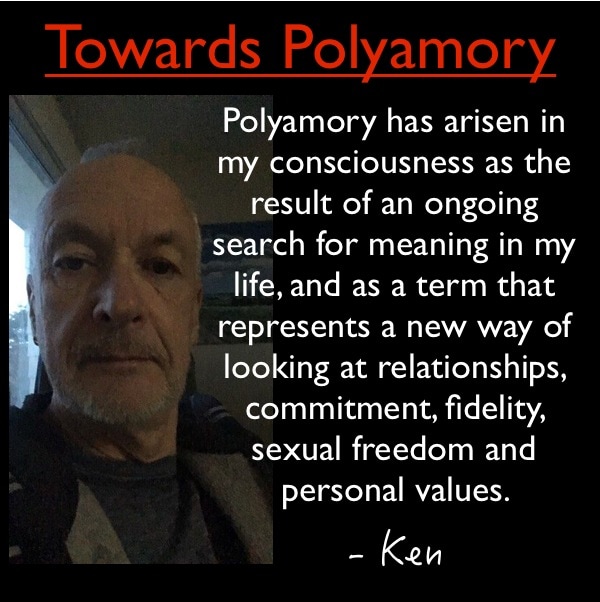
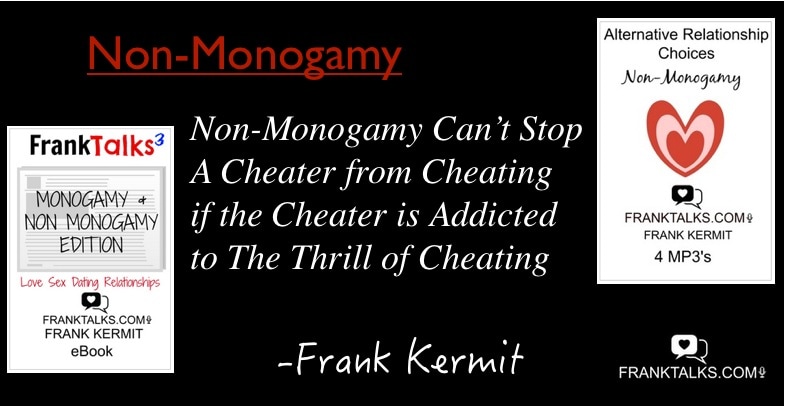
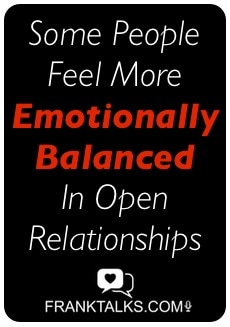

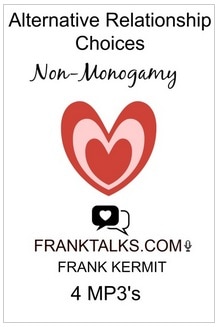






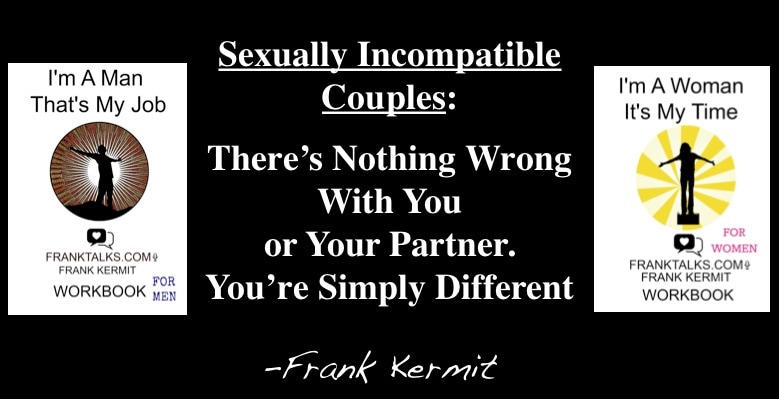
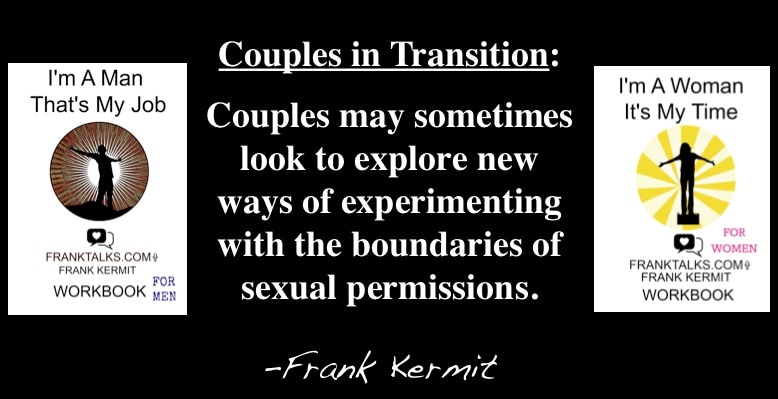


 RSS Feed
RSS Feed


















